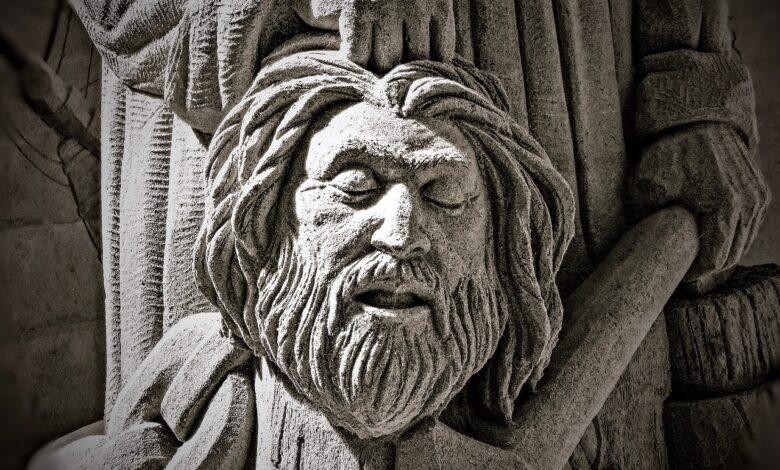Beheading Dream Meaning and Interpretation

Have you ever experienced a dream where you or someone was beheaded? It’s quite a chilling image, right? Although unsettling, dreams about beheading can offer profound insights into our psyche. But what does “Beheading Dream Meaning” actually signify? In this article, we will take a deep dive into the symbolism and interpretations associated with such dreams.
Interpretations of Beheading Dreams
The realm of dreams, laden with symbols and metaphors, offers a unique window into our subconscious mind. When it comes to beheading dreams, their intense nature often leaves an indelible mark on the dreamer’s mind. Delving into the interpretations can provide clarity, understanding, and even guidance. Here are some key interpretations and possible reasons for such dreams:
- Personal Transformation or Transition
- Change is a constant in life. Beheading may signify the end of one phase and the commencement of another, urging the dreamer to leave behind old habits and beliefs.
- Such dreams could represent a desire for radical personal change or even a complete alteration in life direction.
- Power Struggles or Dominance Issues
- A dream where you are beheading someone might signify feelings of control, dominance, or a desire to ‘cut off’ someone or something from your life.
- Conversely, if you’re being beheaded, it might highlight feelings of powerlessness or being overpowered by external forces or individuals.
- Suppressed Feelings or Emotions
- Beheading could represent an attempt to detach from deeply rooted emotions, or perhaps, the need to express stifled feelings.
- It may also be symbolic of a conscious or subconscious desire to ‘remove’ oneself from a situation causing emotional turmoil.
- Facing Consequences or Accountability
- The act of beheading, historically a form of punishment, might symbolize the need to face repercussions for one’s actions.
- It could be an internal acknowledgment that one needs to take responsibility for past actions or decisions.
- Fear of Loss or Severance
- Dreams of beheading might also embody fears of losing an integral part of oneself or being separated from a cherished aspect of life.
- This could relate to fears of abandonment, relationship breakdowns, or even job loss.
Delving into the specifics of each dream and aligning them with current life situations can often help unlock the mysteries behind them. However, it’s crucial to remember that dream interpretations are subjective, and the true essence often varies from one individual to another.
What is the Symbolism of Beheading?
Beheading, as an act and symbol, has long carried profound implications across various cultures and historical contexts. While it might conjure disturbing imagery, understanding its symbolism can provide clarity to the dreamer. Below, we delve deeper into the layers of meaning associated with beheading:
- Endings and New Beginnings
- Throughout history, beheading was a decisive end, whether as capital punishment or war casualties. Symbolically, this can represent the end of a chapter in one’s life, making way for new opportunities.
- Just as a tree might sprout new branches when one is cut, personal growth can emerge from endings.
- Severance from Beliefs or Habits
- The act of cutting off the head, a vital part of our being, may symbolize a need or desire to disconnect from deeply ingrained beliefs, habits, or relationships.
- This could highlight a transition phase where one is shedding old skins and beliefs in favor of new ones.
- Power and Control
- Historically, rulers often used beheading as a demonstration of their power and authority. In dreams, this might be symbolic of personal power dynamics or struggles.
- Conversely, it could also denote feelings of powerlessness, especially if one finds oneself on the receiving end in the dream.
- Sacrifice and Redemption
- Beheading has been a form of sacrifice in various cultures. Symbolically, it might represent personal sacrifices made for the greater good or a transformative cause.
- In some contexts, it also denotes purification or redemption, highlighting the notion that through sacrifice, one attains a higher state of being or clarity.
- Identity and Self-Reflection
- The head is the seat of our identity, thoughts, and consciousness. A dream of beheading could prompt questions about self-worth, identity, and one’s place in the world.
- Such dreams might encourage deeper introspection and self-reflection, urging the dreamer to re-evaluate personal values and beliefs.
Given the multifaceted symbolism behind beheading, understanding its nuances in the context of personal experiences can provide valuable insights. Each interpretation offers a pathway to deeper self-awareness and understanding of one’s subconscious mind.
Common and Typical Dreams of Beheading
Dreams of beheading, though intense, are not as uncommon as one might think. The varied nuances of these dreams often shed light on different aspects of the dreamer’s psyche, emotions, and life situations. Let’s explore some of the more typical beheading dreams and their potential interpretations:
- Dream of Being Beheaded
- Facing Vulnerability: This dream can be a stark reminder of one’s vulnerabilities, exposing fears related to personal safety, well-being, or social perception.
- Loss of Control: Such a dream can emphasize feelings of losing control in specific areas of life, be it relationships, career, or personal goals.
- Renewal and Rebirth: Ironically, the act of being beheaded might also symbolize the shedding of the old self, paving the way for rebirth and a fresh start.
- Dream of Beheading Someone
- Exerting Control: This might signify a situation where the dreamer feels empowered, wishes to establish dominance, or desires to ‘cut off’ a problematic aspect of their life.
- Unexpressed Anger or Resentment: This act can indicate buried emotions, signifying the need to address unresolved feelings towards someone.
- Decision Making: It could reflect a subconscious recognition that a decisive action or choice is needed in one’s life.
- Dream of Witnessing a Beheading
- Passive Observer: This suggests feelings of detachment or being an observer in life, highlighting possible alienation or feelings of powerlessness in crucial situations.
- Confronting Violence or Conflict: Witnessing such a violent act can be a subconscious way of processing real-world conflicts or internal emotional turmoil.
- Anticipation of Change: It might foreshadow an impending change, urging the dreamer to brace for significant events or transitions.
- Dream of Multiple Beheadings
- Overwhelm and Chaos: Encountering multiple beheadings could denote feelings of being overwhelmed, indicating tumultuous times or chaotic personal experiences.
- Massive Shifts or Changes: Such a dream can symbolize multiple endings and new beginnings, suggesting drastic shifts in various areas of life.
- Cultural or Societal Influences: Exposure to media, historical accounts, or societal events might also shape these dreams, reflecting collective consciousness.
Gaining insights into these common beheading dreams can be a step towards understanding one’s deeper emotions, fears, desires, and aspirations. However, personal contexts and life experiences play a pivotal role in deciphering the exact meanings these dreams hold for the individual.
Beheading-related dreams
Beheading in dreams doesn’t always manifest in a direct manner. At times, the imagery and symbolism can take on adjacent or related forms that still revolve around the central theme of beheading. Understanding these variations can offer further insight into the intricate tapestry of the subconscious mind. Here are some associated dream scenarios and potential interpretations:
- Carrying a Severed Head
- Burden of Guilt: Holding or carrying a severed head might signify the weight of past actions, decisions, or guilt that one is holding onto.
- Recognition of Achievements: On the flip side, it could also symbolize victory over challenges or obstacles, akin to warriors displaying the heads of their foes as trophies.
- Seeking Acknowledgment: Such a dream might hint at a desire for recognition or validation for one’s actions or achievements.
- Seeing Headless Bodies
- Loss of Identity: Encountering headless figures can reflect feelings of identity crisis, not recognizing oneself, or feeling lost in the grand scheme of things.
- Avoidance of Reality: This imagery might also suggest that one is avoiding facing the truth, refusing to ‘think’ or ‘acknowledge’ specific issues.
- Collective Dehumanization: In broader contexts, it might point towards societal issues, feeling like a faceless entity in a vast system, or concerns about dehumanization.
- Escaping from an Executioner
- Evading Consequences: This dream scenario can represent a subconscious realization that one is trying to escape from the outcomes of their actions or decisions.
- Fear of Judgment: The chase or escape might also denote a fear of being judged, criticized, or scrutinized by others or oneself.
- Inner Struggles: An internal conflict, battling against one’s own judgmental or critical side, can also manifest as an escape from an executioner in dreams.
- Interacting with the Guillotine
- Impending Decisions: Seeing or being near a guillotine can signify forthcoming critical decisions, choices that will have significant ramifications.
- Sudden Endings: It might also symbolize abrupt endings or changes, things in life that end without prolonged anticipation.
- Feeling Trapped: Being on the guillotine’s receiving end can denote feelings of entrapment, inevitability, or facing situations without a perceived escape route.
By diving deeper into these beheading-related dreams and juxtaposing them with current life situations, one can uncover layers of understanding, emotional states, and potential guidance from the subconscious realm. However, the beauty of dream interpretation lies in its subjectivity, and its true resonance is unique to every individual.
Psychological Perspectives
The realm of psychology has long been intrigued by the symbolism and implications of dreams, with beheading being no exception. Here are some psychological viewpoints and interpretations on beheading dreams:
- Jungian Perspective
- Shadow Self: Carl Jung believed that dreams often mirror the “shadow” aspects of our psyche. Beheading might signify confronting suppressed desires, hidden fears, or parts of oneself that are being rejected.
- Anima/Animus: Dreams of beheading can also relate to our inner masculine and feminine energies, indicating a possible imbalance or conflict between them.
- Freudian Analysis
- Repressed Desires: Sigmund Freud opined that dreams are a manifestation of our unconscious desires. Beheading might symbolize suppressed feelings, perhaps those considered taboo or forbidden.
- Parent-Child Dynamics: Freud also delved deep into parent-child relationships. A dream of beheading might reflect unresolved Oedipal or Electra complexities.
- Existential Interpretation
- Search for Meaning: Beheading can symbolize a quest for meaning or identity. It may highlight the dreamer’s internal struggle with existential questions about purpose, autonomy, and the nature of existence.
- Mortality and Fear: Such dreams might also confront one’s fear of death, non-existence, or the transient nature of life.
- Modern Psychological Views
- Stress and Anxiety: In today’s fast-paced world, dreams of beheading can often be a manifestation of underlying stress, anxiety, or feelings of being overwhelmed.
- Coping Mechanisms: These dreams might also symbolize the mind’s attempt to process trauma, unresolved conflicts, or emotional disturbances.
Beheading in Culture & Mythology
Beheading, as a motif, has pervaded many cultures, legends, and mythological tales. Exploring these can provide a cultural lens to interpret such dreams:
- Greek Mythology
- Medusa: The story of Medusa, whose head was severed by Perseus, symbolizes the triumph over chaos and danger. Dreaming of such narratives might reflect overcoming personal demons or adversities.
- Orpheus: After being torn apart by Maenads, Orpheus’ head floated down the river, still singing. This tale can signify resilience, the enduring nature of spirit, or art’s transcendence.
- Biblical References
- John the Baptist: The beheading of John the Baptist symbolizes martyrdom, sacrifice for one’s beliefs, or the consequences of standing up to power. It could also signify personal sacrifices or confronting oppressive forces.
- Celtic Legends
- Bran the Blessed: After his death, Bran’s head was buried to protect the kingdom, signifying sacrifice for the greater good and the enduring protective nature of leaders even after their demise.
- Eastern Tales
- Rahu and Ketu: In Hindu mythology, the demon Rahu was beheaded, and his head and body became celestial entities. This narrative highlights the themes of eternal struggle, karma, and the cyclical nature of life and challenges.
- Historical Practices
- Samurai and Seppuku: In Japanese history, samurais would perform ritualistic disembowelment (seppuku) followed by beheading. This can symbolize honor, facing consequences with dignity, and the deep-rooted cultural values around sacrifice and reputation.
Understanding beheading’s presence in culture and mythology can provide context to the dreamer, linking personal experiences or feelings with larger, universal tales and themes. It emphasizes the shared human experience across time and civilizations.
Conclusion
Beheading dreams, though intense and often disturbing, can be seen as a mirror reflecting our deepest fears, desires, and transformations. Understanding the “Beheading Dream Meaning” can offer clarity and even empower us to face our innermost feelings and challenges. Remember, dreams are a personal experience, and their true meaning often lies within the dreamer’s heart and mind.



